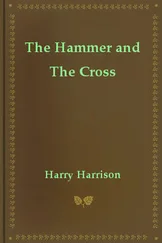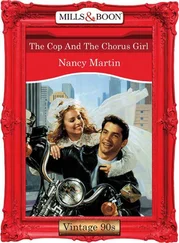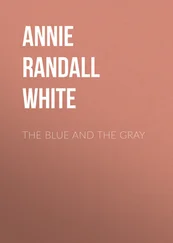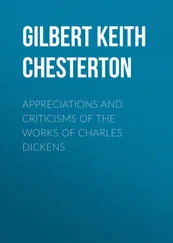Gilbert Chesterton - The Ball and the Cross
Здесь есть возможность читать онлайн «Gilbert Chesterton - The Ball and the Cross» весь текст электронной книги совершенно бесплатно (целиком полную версию без сокращений). В некоторых случаях можно слушать аудио, скачать через торрент в формате fb2 и присутствует краткое содержание. Жанр: Классическая проза, на английском языке. Описание произведения, (предисловие) а так же отзывы посетителей доступны на портале библиотеки ЛибКат.
- Название:The Ball and the Cross
- Автор:
- Жанр:
- Год:неизвестен
- ISBN:нет данных
- Рейтинг книги:5 / 5. Голосов: 1
-
Избранное:Добавить в избранное
- Отзывы:
-
Ваша оценка:
- 100
- 1
- 2
- 3
- 4
- 5
The Ball and the Cross: краткое содержание, описание и аннотация
Предлагаем к чтению аннотацию, описание, краткое содержание или предисловие (зависит от того, что написал сам автор книги «The Ball and the Cross»). Если вы не нашли необходимую информацию о книге — напишите в комментариях, мы постараемся отыскать её.
The Ball and the Cross — читать онлайн бесплатно полную книгу (весь текст) целиком
Ниже представлен текст книги, разбитый по страницам. Система сохранения места последней прочитанной страницы, позволяет с удобством читать онлайн бесплатно книгу «The Ball and the Cross», без необходимости каждый раз заново искать на чём Вы остановились. Поставьте закладку, и сможете в любой момент перейти на страницу, на которой закончили чтение.
Интервал:
Закладка:
“Quite so,” said Turnbull, “a citizen.”
“I say he’s a man,” said the rustic furiously, stopping and striking his stick on the ground. “Not a city or owt else. He’s a man.”
“You’re perfectly right,” said the sudden voice of MacIan, falling like a sword. “And you have kept close to something the whole world of today tries to forget.”
“Good night.”
And the old man went on wildly singing into the night.
“A jolly old creature,” said Turnbull; “he didn’t seem able to get much beyond that fact that a man is a man.”
“Has anybody got beyond it?” asked MacIan.
Turnbull looked at him curiously. “Are you turning an agnostic?” he asked.
“Oh, you do not understand!” cried out MacIan. “We Catholics are all agnostics. We Catholics have only in that sense got as far as realizing that man is a man. But your Ibsens and your Zolas and your Shaws and your Tolstoys have not even got so far.”
VIII. AN INTERLUDE OF ARGUMENT
Morning broke in bitter silver along the grey and level plain; and almost as it did so Turnbull and MacIan came out of a low, scrubby wood on to the empty and desolate flats. They had walked all night.
They had walked all night and talked all night also, and if the subject had been capable of being exhausted they would have exhausted it. Their long and changing argument had taken them through districts and landscapes equally changing. They had discussed Haeckel upon hills so high and steep that in spite of the coldness of the night it seemed as if the stars might burn them. They had explained and re-explained the Massacre of St. Bartholomew in little white lanes walled in with standing corn as with walls of gold. They had talked about Mr. Kensit in dim and twinkling pine woods, amid the bewildering monotony of the pines. And it was with the end of a long speech from MacIan, passionately defending the practical achievements and the solid prosperity of the Catholic tradition, that they came out upon the open land.
MacIan had learnt much and thought more since he came out of the cloudy hills of Arisaig. He had met many typical modern figures under circumstances which were sharply symbolic; and, moreover, he had absorbed the main modern atmosphere from the mere presence and chance phrases of Turnbull, as such atmospheres can always be absorbed from the presence and the phrases of any man of great mental vitality. He had at last begun thoroughly to understand what are the grounds upon which the mass of the modern world solidly disapprove of her creed; and he threw himself into replying to them with a hot intellectual enjoyment.
“I begin to understand one or two of your dogmas, Mr. Turnbull,” he had said emphatically as they ploughed heavily up a wooded hill. “And every one that I understand I deny. Take any one of them you like. You hold that your heretics and sceptics have helped the world forward and handed on a lamp of progress. I deny it. Nothing is plainer from real history than that each of your heretics invented a complete cosmos of his own which the next heretic smashed entirely to pieces. Who knows now exactly what Nestorius taught? Who cares? There are only two things that we know for certain about it. The first is that Nestorius, as a heretic, taught something quite opposite to the teaching of Arius, the heretic who came before him, and something quite useless to James Turnbull, the heretic who comes after. I defy you to go back to the Free-thinkers of the past and find any habitation for yourself at all. I defy you to read Godwin or Shelley or the deists of the eighteenth century of the nature-worshipping humanists of the Renaissance, without discovering that you differ from them twice as much as you differ from the Pope. You are a nineteenth-century sceptic, and you are always telling me that I ignore the cruelty of nature. If you had been an eighteenth-century sceptic you would have told me that I ignore the kindness and benevolence of nature. You are an atheist, and you praise the deists of the eighteenth century. Read them instead of praising them, and you will find that their whole universe stands or falls with the deity. You are a materialist, and you think Bruno a scientific hero. See what he said and you will think him an insane mystic. No, the great Free-thinker, with his genuine ability and honesty, does not in practice destroy Christianity. What he does destroy is the Free-thinker who went before. Free-thought may be suggestive, it may be inspiriting, it may have as much as you please of the merits that come from vivacity and variety. But there is one thing Free-thought can never be by any possibility– Free-thought can never be progressive. It can never be progressive because it will accept nothing from the past; it begins every time again from the beginning; and it goes every time in a different direction. All the rational philosophers have gone along different roads, so it is impossible to say which has gone farthest. Who can discuss whether Emerson was a better optimist than Schopenhauer was pessimist? It is like asking if this corn is as yellow as that hill is steep. No; there are only two things that really progress; and they both accept accumulations of authority. They may be progressing uphill and down; they may be growing steadily better or steadily worse; but they have steadily increased in certain definable matters; they have steadily advanced in a certain definable direction; they are the only two things, it seems, that ever can progress. The first is strictly physical science. The second is the Catholic Church.”
“Physical science and the Catholic Church!” said Turnbull sarcastically; “and no doubt the first owes a great deal to the second.”
“If you pressed that point I might reply that it was very probable,” answered MacIan calmly. “I often fancy that your historical generalizations rest frequently on random instances; I should not be surprised if your vague notions of the Church as the persecutor of science was a generalization from Galileo. I should not be at all surprised if, when you counted the scientific investigations and discoveries since the fall of Rome, you found that a great mass of them had been made by monks. But the matter is irrelevant to my meaning. I say that if you want an example of anything which has progressed in the moral world by the same method as science in the material world, by continually adding to without unsettling what was there before, then I say that there is only one example of it. And that is Us.”
“With this enormous difference,” said Turnbull, “that however elaborate be the calculations of physical science, their net result can be tested. Granted that it took millions of books I never read and millions of men I never heard of to discover the electric light. Still I can see the electric light. But I cannot see the supreme virtue which is the result of all your theologies and sacraments.”
“Catholic virtue is often invisible because it is the normal,” answered MacIan. “Christianity is always out of fashion because it is always sane; and all fashions are mild insanities. When Italy is mad on art the Church seems too Puritanical; when England is mad on Puritanism the Church seems too artistic. When you quarrel with us now you class us with kingship and despotism; but when you quarrelled with us first it was because we would not accept the divine despotism of Henry VIII. The Church always seems to be behind the times, when it is really beyond the times; it is waiting till the last fad shall have seen its last summer. It keeps the key of a permanent virtue.”
“Oh, I have heard all that!” said Turnbull with genial contempt. “I have heard that Christianity keeps the key of virtue, and that if you read Tom Paine you will cut your throat at Monte Carlo. It is such rubbish that I am not even angry at it. You say that Christianity is the prop of morals; but what more do you do? When a doctor attends you and could poison you with a pinch of salt, do you ask whether he is a Christian? You ask whether he is a gentleman, whether he is an M.D.–anything but that. When a soldier enlists to die for his country or disgrace it, do you ask whether he is a Christian? You are more likely to ask whether he is Oxford or Cambridge at the boat race. If you think your creed essential to morals why do you not make it a test for these things?”
Читать дальшеИнтервал:
Закладка:
Похожие книги на «The Ball and the Cross»
Представляем Вашему вниманию похожие книги на «The Ball and the Cross» списком для выбора. Мы отобрали схожую по названию и смыслу литературу в надежде предоставить читателям больше вариантов отыскать новые, интересные, ещё непрочитанные произведения.
Обсуждение, отзывы о книге «The Ball and the Cross» и просто собственные мнения читателей. Оставьте ваши комментарии, напишите, что Вы думаете о произведении, его смысле или главных героях. Укажите что конкретно понравилось, а что нет, и почему Вы так считаете.









